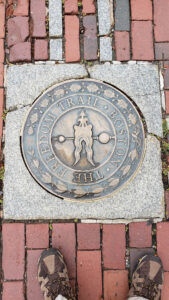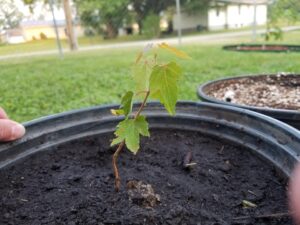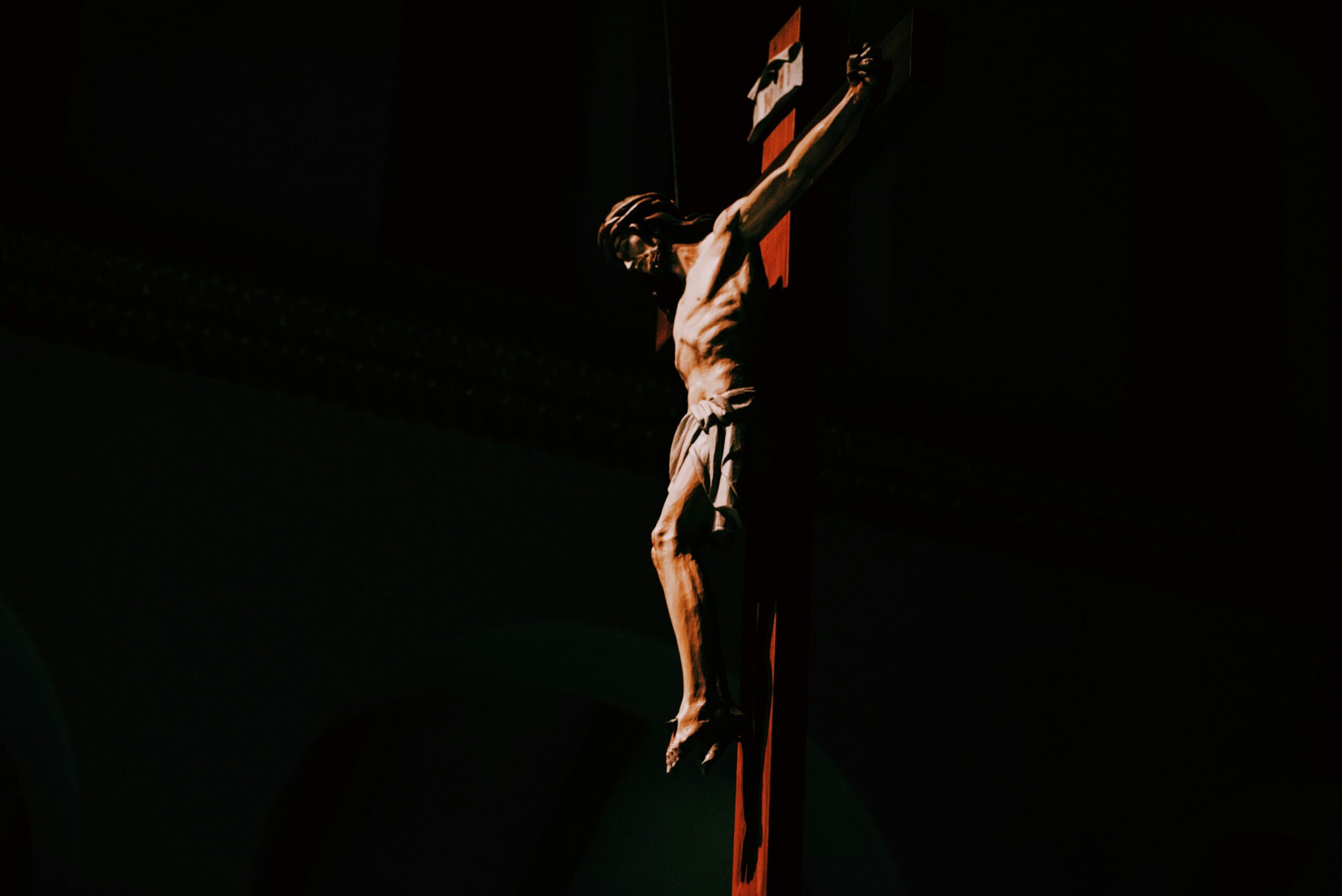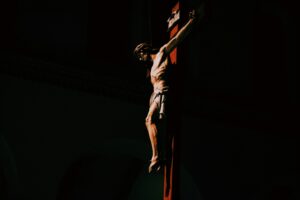
A Uniquely Ordinary Life

By: Marcy Barthelette
Being confident of this, that he who began a good work in you will carry it on to completion until the day of Christ Jesus. Philippians 1:6
I learned early in life that books could take me to places I could only dream of and introduce me to people who would become my heroes. I devoured stories about men and women who made great scientific discoveries or fought valiantly for our nation’s freedom and I feasted on tales of explorers setting foot on new ground. I dived into the Mayflower’s cruise across the Atlantic with gusto. I rode alongside Paul Revere to alert the countryside of eminent danger. I sat through long, restless nights with Abe Lincoln and best of all, I travelled the Missouri River and then the mighty Columbia with Lewis and Clark. More recently, I wondered how it would feel to be Thomas Edison and invent the light bulb or Jonas Salk and develop the vaccine for polio. And how about being the first man to step from a space ship down onto the moon?
devoured stories about men and women who made great scientific discoveries or fought valiantly for our nation’s freedom and I feasted on tales of explorers setting foot on new ground. I dived into the Mayflower’s cruise across the Atlantic with gusto. I rode alongside Paul Revere to alert the countryside of eminent danger. I sat through long, restless nights with Abe Lincoln and best of all, I travelled the Missouri River and then the mighty Columbia with Lewis and Clark. More recently, I wondered how it would feel to be Thomas Edison and invent the light bulb or Jonas Salk and develop the vaccine for polio. And how about being the first man to step from a space ship down onto the moon?
As an adult, imagine my surprise at the reality that sailing on the Mayflower was certainly no party cruise. It involved tremendous sacrifice and a lot of plain old fortitude. The revolution meant grueling years of fighting and loneliness and being without food, clean water or even shoes. Freedom wasn’t and never will be free. Old Abe was a man revered by many but hated by many more. His desire to keep our country united cost him dearly. And as for Lewis and Clark, for every new wonder they beheld in this land of plenty, there was a danger that threatened to claim their lives. Mr. Edison endured numerous failures along the way to perfecting that light bulb and Mr. Salk spent countless years in the lab before a reliable vaccine finally made its way to the population. I can’t even imagine the rigorous training required to facilitate human space travel, but I assure you Neil Armstrong felt every moment of it. Have I lost my enthusiasm for their stories? Certainly not, but reality does illuminate them through a new lens.

As I muse over all the dreams I’ve dreamt about finding cures for disease or traveling the world to discover unknown islands or caverns, I have often felt my life has been very dull indeed. All that adventure fueled my rich imagination but it also left me wondering why my life seemed so ordinary. When we view life from the perspective of one event, we fail to see the cumulative depth of even our own stories. But as a whole book, they create an exciting story that is uniquely our own.
I’ve visited the re-created Plymouth Colony in Massachusetts and walked the soil that Pilgrims so diligently worked. I’ve strolled the Freedom Trail in Boston and seen the home that once belonged to Paul Revere. I’ve been to Gettysburg, where one can almost hear the cannons roar as President Lincoln prepares to deliver his Emancipation Proclamation. And, while I’ve never made it to the west coast, I have visited Missouri sites where Lewis and Clark passed through, and I still have hope of traveling their journey to that far shore. I’ve seen the tales of science and space travel in museums across our country. I have listened to the roar of the mighty Niagara as it tumbles over cliffs to pools below. I’ve stood atop Pike’s Peak and gazed at the other surrounding “fourteeners,” their name alluding to their height. I’ve watched snow form from the trees on one side of Clingman’s Dome and dump itself on the other side. I’ve dipped my toes into the Atlantic from Maine to Florida and marveled at the blue-green waters and white sugar sand beaches of the Gulf shore.
As a child, I was blessed by the love and protection of parents who had little materially, but were wealthy beyond measure in their dedication to showing me, by example, the way I should live. As I grew into adulthood and spread my wings, I wasn’t always the person they taught me to be and I certainly wasn’t always the person God created me to be. But life’s events began to turn me around. As an expectant mom, I felt the sheer delight of new life stirring within me and I later laughed at a toothless little grin until I realized that adorable smiling little face was expressing the joy of downloading all that strained food I’d worked so hard to prepare into her diaper. How could I ever have thought that was cute? I’ve cheered toddlers through their first steps and sent kindergartners off into a big world of new beginnings. I’ve cried tears of joy at graduations, weddings, and births of another generation. I’ve been a working mom and a single mom. I’ve seen life from many angles.
dedication to showing me, by example, the way I should live. As I grew into adulthood and spread my wings, I wasn’t always the person they taught me to be and I certainly wasn’t always the person God created me to be. But life’s events began to turn me around. As an expectant mom, I felt the sheer delight of new life stirring within me and I later laughed at a toothless little grin until I realized that adorable smiling little face was expressing the joy of downloading all that strained food I’d worked so hard to prepare into her diaper. How could I ever have thought that was cute? I’ve cheered toddlers through their first steps and sent kindergartners off into a big world of new beginnings. I’ve cried tears of joy at graduations, weddings, and births of another generation. I’ve been a working mom and a single mom. I’ve seen life from many angles.
For many, but not all, of my adventures and misadventures, I’ve had a wonderful husband at my side to share the experience. We became a blended family when our kids where thirteen, twelve, and ten. We’ve sat up many nights with a sick or anxious child but spent many more at programs and games and holidays with those same children. And in our older years, we’ve celebrated and agonized with our grandchildren through those same growth cycles. Life goes on.
I’ve barely scratched the surface of the events in my life and, large or small, they create a composite that is uniquely me, a rich tapestry woven together with threads of all the people and experiences that have filled these years. Contrary to my earlier belief, there’s nothing ordinary about my story. It’s filled with twists and turns, successes and failures, good times and trying times. It’s the life God gave me and He’s traveled every road with me, even if I forgot momentarily that He was there. He’s never let me down and He never will. And I am absolutely certain He still has a few adventures ahead for me.
Every book has its calm waters that set the stage for an exciting finish. Our lives are much like that. We don’t have to travel to find adventures. They’re all around us, on the other side of town, across the street, and in our own backyards, just waiting for us to open the cover of the book and turn the page. If you sometimes think your time on earth is or has been meaningless, take a closer look at all God has done for you, go out and write a new chapter, then repeat a much-used phrase from our beloved Pastor Phil, “It’s all good!” And it’s all uniquely YOU!
Read more...

My Roller Coaster Week

It’s Sunday evening. Mother’s Day is drawing to a close and so is a roller-coaster week. We’ve experienced euphoric highs and some very scary lows.
For most of us, the week began with a forecast of severe storms, so I went through my usual checklist for readying the storm shelter. We coasted through that first storm pretty well, but the shelter remained stocked and our car stayed in a neighbor’s garage for two more days because another round of storms was making tracks for our area.
On Tuesday, our youngest daughter had a bone scan following an abnormal lab result discovered during a routine visit with her oncologist. And then came the waiting. We were blessed with a quick turn around on the results and even more blessed that the outcome was excellent…no evidence of disease in the bones. That was our really high point. Only hours later, we found ourselves in the storm shelter waiting for the tornado that struck Monett and Aurora to make its way to Clever. Miraculously, it broke apart after doing its mischief in those two towns. So Wednesday we were cautious, then up, then down, and up again. It was dizzying!
On Friday, we attended the event at Aldersgate featuring Ethan and Sara Forhetz where we received a dynamic message that challenged each of to take a closer look at our faith.
Saturday, the Aurora Borealis made an appearance in the Ozarks and, though we couldn’t see it from our home, our kids in the country had an awesome experience staring into the very face of one of God’s many wonders. They shared incredible photos with us.
 By Sunday, we thought we couldn’t possibly handle much more excitement, but we had decided to visit Silver Dollar City, and though I was skeptical of trying this on Mother’s Day, we went. Ken has great memories of hearing Rhonda Vincent when she was very young and just getting her start in the world of Bluegrass music. In fact, his kids played with her younger brother at the various Bluegrass festivals. It’s very questionable that you will get in to one of her shows but we managed to be in the right place at the right time and were ushered to two of only a few remaining seats. None too soon either. The show began momentarily and we needn’t have worried about missing church because we had a good old-fashioned country church type gospel sing.
By Sunday, we thought we couldn’t possibly handle much more excitement, but we had decided to visit Silver Dollar City, and though I was skeptical of trying this on Mother’s Day, we went. Ken has great memories of hearing Rhonda Vincent when she was very young and just getting her start in the world of Bluegrass music. In fact, his kids played with her younger brother at the various Bluegrass festivals. It’s very questionable that you will get in to one of her shows but we managed to be in the right place at the right time and were ushered to two of only a few remaining seats. None too soon either. The show began momentarily and we needn’t have worried about missing church because we had a good old-fashioned country church type gospel sing.
As the last offering of her show, Rhonda announced that she wanted to have a choir on stage and invited any audience members who wished to join her to come down. I knew Ken wanted to go, but he kept hesitating until I nearly pushed him into the aisle. As he started up the stairs, I saw him with his arm around a lady whom I soon realized was a dear old friend whom we hadn’t seen in a while. They had a great time singing, Ken visited briefly with Rhonda, and old friends got together for a bit of a reunion. It turns out that Kathy’s husband had pushed her into the aisle as well. What are the odds that we would all be there in that building at the same time, that Ken and Kathy would reach those stairs at the same moment and we would all four be treated to a totally unexpected afternoon together. Coincidence? I don’t think so. I don’t think any of the past week’s roller coaster had anything to do with chance. God was with us every moment of every day, during the good and the bad times.
The fun didn’t end there. The four of us went around a few corners to a different venue to hear our own Casey and Kelly Freeland, along with their band, and they surely didn’t disappoint. I hadn’t heard Casey and the Attaboys in a long time but I quickly recalled how truly entertaining they are. We hear them in our own church but it’s fun to see them in a different setting playing and singing the music they all love. Wish we could see them much more often.
with their band, and they surely didn’t disappoint. I hadn’t heard Casey and the Attaboys in a long time but I quickly recalled how truly entertaining they are. We hear them in our own church but it’s fun to see them in a different setting playing and singing the music they all love. Wish we could see them much more often.
Our last stop was on the log cabin porch listening to the Homestead Pickers playing some great gospel and some really fun Bluegrass. What an end to such a beautiful day. The weather was great, I had Mother’s Day wishes from all the kids, we got to see old and dear friends, and heard some of the best music you could ever hope to hear. I don’t know what new adventures may have happened by the time you read this. But one thing I do know, the Lord is the same; yesterday, today, and tomorrow. Our lives may pass through countless twists and turns, we may journey to the deepest valleys and the highest mountaintops. Wherever we travel, whatever circumstances we encounter, He will be right there by our side. Through all of this topsy, turvy week, I have felt His peace around me, tugging me a little closer and bringing me comfort. I pray you have that peace as well.
The Lord is my shepherd, I have all that I need…Even when I walk through the darkest valley, I will not be afraid…my cup overflows with blessings! (Excerpts from the twenty third Psalm)
Read more...

All You Ever Wanted to Know About Ants

A few weeks ago, we took a leisurely drive down to Table Rock State Park and stopped by the campground for a visit with our youngest daughter’s family. We had no specific plans so we enjoyed a laid back afternoon talking, walking, and sharing a few snacks. At some point, we noticed that our granddaughter, now thirteen, was crouched to the ground pointing her phone at something that was consuming her  entire focus. She was actually recording a colony of ants as they were transporting a chunk from one of our said snacks across the pavement, presumably to their cozy little anthill.
entire focus. She was actually recording a colony of ants as they were transporting a chunk from one of our said snacks across the pavement, presumably to their cozy little anthill.
Needless to say, this parade of tiny insects encountered numerous obstacles on their journey—you know, a leaf here, a stick there, not to mention a sizeable crack in the pavement. It must have looked like the Grand Canyon to those tiny creatures. By now, all ten of our eyes were keeping track of the ant colony’s progress and cracking a few jokes about them as well. Our guys exhibit quite a bit of wit in this type of situation.
Needless to say, we’ve all experienced an invasion of ants in our homes or on a long awaited picnic and, trust me, no one is quicker to react to ants in the kitchen than I am, but if we get down to their level and really take a good look, these are interesting and industrious creatures. Just for fun, here are a few ant facts, all gleaned from the internet, so they must be true. I did choose to quote the more reliable of my resources, National Geographic:
Depending on the species, an ant can carry up to fifty times its own weight.
Worldwide, there are about twelve thousand species and ants can be found on every continent except Antarctica.
Ants live very long lives. The queen of one particular species can survive up to thirty years.
Watch your step!
In the year 2000, an anthill in Argentina was determined to be a single colony of some thirty three ant populations merged into one super colony that stretched 3700 miles with millions of nests and billions of workers.
There are more fun facts but I’ll let you check them out for yourselves.
Perhaps the most interesting factor in the life of the ant colony is that each group of ants has a specific job to do and they all work together for the good of everyone in the colony.
How does all this ant info possibly connect to anything other than a fun afternoon for our family…well, here it is folks. Last Sunday morning, twenty young sixth graders stood in front of the 11:11 congregation and, after many weeks of study, community service projects, team-building activities and leadership opportunities here in our church, they openly professed their faith. Some were baptized, others reaffirmed their baptisms, and some entered into full member fellowship with Aldersgate. They took that big first step, but what comes next?
At the same time these young people made their vows, we, as a church took a vow to support them. That means we all need to strive to set an example that glorifies God. We may never have a conversation with any of these confirmands, but if they see us doing something contrary to Bible teachings, it can make a lasting impression. It may say, “If they can do it, so can I!”
Just like those industrious ants, we need to focus together on the task at hand. If one stumbles, others should rush to carry the load. If one doesn’t feel worthy, we should build that one up until their faith is strengthened. If one should turn away, we should not rest until we have done all we can to return that one to the family. After all, Jesus did, and He was our example. May we, as the adult ants in this colony, do all we can to teach by example, to encourage, to build up all our young people so they can become good leaders of our families, our churches, our communities. May that fire in their hearts for Jesus at the moment they made their vows continue to burn brightly when they face adversaries or begin to doubt. They will stumble as we all do, but let’s be there to lift them back up and restore their faith. People of Aldersgate, we’re all on a journey and we’re all homeward bound. Our path is filled with challenges, but together we can do, just like the ants.
churches, our communities. May that fire in their hearts for Jesus at the moment they made their vows continue to burn brightly when they face adversaries or begin to doubt. They will stumble as we all do, but let’s be there to lift them back up and restore their faith. People of Aldersgate, we’re all on a journey and we’re all homeward bound. Our path is filled with challenges, but together we can do, just like the ants.
Train up a child in the way he should go, and even when he is old he will not depart from it. Proverbs 22:6
Read more...

Stormy Skies

When Jesus woke up, he rebuked the wind and said to the waves, “Silence! Be still!” Suddenly the wind stopped, and there was a great calm. Mark 4:39
Last week left some of us wondering where Jesus was when the rains came tumbling down in torrents, flooding streets and streams, and causing day to resemble night. For a bit I thought we might be having another solar eclipse, a very long one. Everyone we talked to was joking about building arks. For most of us, the storms were an inconvenience, but for some, rapidly rising water became a life and death trial. Several notable water rescues were reported by local news stations. And our weather forecasting teams were in their element, warning everyone to “turn around, don’t drown” and making sure we knew all our severe weather safety tips. They claim they aren’t sharing their predictions of baseball sized hail, sixty mile an hour winds, and, oh yes, the stray tornado or two that will likely pop up, to frighten us. They just want us to be prepared.
We all know that the tag line of any story gathers more interest and higher ratings when it hints at frightening consequences or an unpredictable outcome. Alas, our trusted weather icons are no different. And so, when we hear predictions of large hail, the vehicles go in the garage. Strong wind means the deck furniture is clustered and its profile reduced. If the forecast includes possible tornadoes, my go-bag is packed for a trip to the safe room if and when the siren sounds. And we don’t hesitate to take advantage of that safe room if needed.
How did we manage back in the days when all the sophisticated weather predicting technology didn’t exist. When the sky darkened and we heard thunder in the distance, we went inside because we assumed it was going to rain. If winds were howling and we heard a sound that resembled a freight train, we rushed to the basement or cellar to ride it out. If we lived near water and saw it rising, we knew when it was time for us to evacuate.
 Then and now, one thread probably remains the same, the unknown always packs a punch of good old-fashioned fear. It’s a natural human emotion and we’ve all fallen prey to it at one time or another. And the storms of our lives may be natural disasters, I’ve personally been witness to many of those, or they may be metaphorical. Our storms could be of a financial nature, or they could result from health issues. Broken relationships, lost careers, depression or PTSD are just a few of the storms we must navigate. And, my friends, none are easy.
Then and now, one thread probably remains the same, the unknown always packs a punch of good old-fashioned fear. It’s a natural human emotion and we’ve all fallen prey to it at one time or another. And the storms of our lives may be natural disasters, I’ve personally been witness to many of those, or they may be metaphorical. Our storms could be of a financial nature, or they could result from health issues. Broken relationships, lost careers, depression or PTSD are just a few of the storms we must navigate. And, my friends, none are easy.
We have a great family living across the street from us and they have a philosophy about life that seems very sound to me. It goes something like this: If I live to see another day, I’ll have more time to spend with family and friends. But if I die tonight, I’ll have eternity to spend with Jesus. Either way I’m a winner! I can’t think of a better way to approach life.
We all live in an ocean filled with both tranquil days and raging waves but with Jesus at the helm, all is well! As you travel through the storms of life and find yourself approaching an unexpected or imperfect ending, fear not! Just around the corner lies a perfect new beginning.
Jesus wasn’t thrown off by thunderstorms [when he walked this earth], and He’s not caught
off guard by the storms in our lives now. It might look like Jesus is asleep in the back of the boat,
but He’s actually fixing the rudder. Bob Goff, Live in Grace, Walk in Love (Paraphrased)
This story developed a Postscript: I had just completed writing on Sunday evening and was settled into starting a new puzzle while Ken surfed the online news stories of the day. The storms of the weekend were winding down and our lives were beginning to feel normal again. I’d taken my phone with me in anticipation of a good night text from my granddaughter and it suddenly jumped to life with a weather service warning of a tornado near us. We made a hasty trip to our safe room where we waited through the sound of wailing sirens, wind and heavy rain until our local warning expired. Luckily, we hadn’t lost power and our cell phones had a decent signal through the steel walls that shielded us. And, praise God, we were spared to live another day. We learned that the tornado had touched down just a couple of miles from our home. Once the adrenaline spike wore off we watched radar for a couple more hours to be sure the storms had cleared our kids’ home as well.
We were safe, but this past weekend had been costly for many in mid America. Some lost loved ones to raging water and twisting winds. Others lost all their material possessions and are wondering where to start picking up the pieces. To them we offer our prayers and whatever tangible assistance we can.
We just never know when unexpected storms will shove us down a path we never expected, but we can be ready for whatever comes if we choose to let Jesus take the helm of our boat. And that sunshine we woke to on Monday morning? Well, it sure looked good!
Read more...

Keeping the Lines Open


This is the day that the Lord has made; let us rejoice and be glad in it. Psalm 118:24
In recent weeks, Ken and I have traveled a lot of backroads, searching for spring. And we found it, around every curve, deep in every valley, and atop every hill. Drifts of yellow daffodils marked homesteads long forgotten. The humble violet hugged the ground in regal purple hues. Pear trees created clouds of creamy white and draped them over the landscape. Our beloved redbud trees painted the hillsides and roadways in beautiful shades of pink. And then came the dogwood and they really showed their stuff this year.
The backroads were not the only places springing to life. Neighborhoods and business complexes all around the Ozarks joined in the parade of colors, the latest being azaleas. I think it is safe to say that spring 2024 has officially sprung!
I also think it very fitting that in this part of the world, we celebrate the resurrection of our Lord in springtime, when everything is waking to new life. It’s hard for me to imagine saying Happy Easter in fall when leaves are turning color and tumbling to the ground. The resurrection is all about new life, a new way of communicating with God, through Jesus, the Intercessor.
 It was also in spring, April of 2020, in fact, when a new publication, a new way of communicating, was introduced to the Aldersgate family. It was called the Gatepost Weekly and it was intended to keep our family of believers connected during the COVID pandemic. It informed churchgoers of the various programs that were being offered via Zoom. We learned that we could attend services and meetings online and, while most would prefer in-person worship, the internet, through various media kept us hearing our familiar music, sharing in communion, and learning how to cope with all the challenges we facedthrough the messages of our pastors. And for those who can’t attend in-person, our services remain online each week. Once the pandemic ended, and while we recovered from the darkness of a winter season into the new life of spring, communication was still the key element for keeping our family connected.
It was also in spring, April of 2020, in fact, when a new publication, a new way of communicating, was introduced to the Aldersgate family. It was called the Gatepost Weekly and it was intended to keep our family of believers connected during the COVID pandemic. It informed churchgoers of the various programs that were being offered via Zoom. We learned that we could attend services and meetings online and, while most would prefer in-person worship, the internet, through various media kept us hearing our familiar music, sharing in communion, and learning how to cope with all the challenges we facedthrough the messages of our pastors. And for those who can’t attend in-person, our services remain online each week. Once the pandemic ended, and while we recovered from the darkness of a winter season into the new life of spring, communication was still the key element for keeping our family connected.
Today, our weekly email message provides information about activities happening at Aldersgate, trips and projects for our youth and a quick connection for them to sign up, news of Bible studies, ministry opportunities, introductions to new staff members and so much more. Gatepost Weekly continues to be a valuable element in our communications program.
I recall Casey Freeland’s request, four years ago, that I consider writing an article for the print version of Gatepost. At the same time, she casually mentioned this new email endeavor that she was preparing to birth and suggested I might want to write something for it. I gave it a try and we’re still going strong. To all of you who read or comment or encourage the words I share, I say a heartfelt thank you. And I extend my gratitude to Casey for creating eye-catching announcements and coordinating everything that goes into the making of a great publication, one that continues to keep us all connected and informed. I especially thank her for offering me the opportunity to contribute. It truly does bless me. Happy fourth anniversary to Gatepost Weekly! Here’s to many more.
extend my gratitude to Casey for creating eye-catching announcements and coordinating everything that goes into the making of a great publication, one that continues to keep us all connected and informed. I especially thank her for offering me the opportunity to contribute. It truly does bless me. Happy fourth anniversary to Gatepost Weekly! Here’s to many more.
As Christians, we have the responsibility and the privilege of maintaining our personal lines of communication with God, of keeping them free and uncluttered from the distractions of the world around us. Jesus suffered and died that we might be offered the gift of resurrection, from wherever we have fallen. So, as the earth is coming back to life in all its glory, listen for His voice, tell Him what’s on your mind. He’s always there and He wants to hear from you. Rejoice….Christ lives!
Rejoice always! I Thessalonians 5:16
Read more...

Helicopters Diving to Earth

Then God said: Let the land sprout with vegetation—every sort of seed-bearing plant, and trees that grow seed-bearing fruit. These seeds will then produce the kinds of plants and trees from which they came.
Genesis 1:11
No need for concern about my title…I’m not referring to those large birds that carry people. These helicopters are the twirly, whirly seed pods that dive into our yard every spring populating the holes in our gutter guards, hiding behind windshield wipers, filling every crack in any pavement, and making a general nuisance of themselves. They fall from a silver maple out front and two lovely red maples in the back yard. I don’t know if everyone knows them as helicopters or not, but we have described them as such for as long as I can remember. Before we know it, they’ll be poking new life through the earth in huge numbers and creating havoc in my landscape beds. They love to hide underneath larger plants until their roots grow deep enough that I have difficulty pulling them. 
A closer study of these little gems of nature reveals a blueprint for life that only God could create. The helicopters consist of a seed tucked deep in the pointed end of the structure. The top part is a much thinner membrane that is the single blade of these fearless fliers. The design is so simple, the heavier seed on the point falls to the ground first, followed by the delicate blade, twisting and turning in the breeze. There have been mornings when I’ve looked out over the yard and witnessed thousands of those wispy little blades standing tall above the grass, having safely delivered their payload. The blade will wither and fall away while the seed begins to swell, ultimately breaking free from its shell. Tiny roots will reach down in hope of finding fertile soil. And soon, a tiny new tree will emerge. A perfect plan, an incredible design, and one of the many miracles that surround us every day.
But, alas, so many detours can block those healthy little trees from becoming the giants that grace our lawn and shade us from the sun. My research into the fate of maple seeds introduced their scientific name as samaras. Personally, I like helicopters better and I think it describes them perfectly. I learned that my trees, the red and silver maple, along with the Norway maple, take top production honors. Some estimates suggested twelve to twenty thousand in a single year. That’s one tree and we have three.
 The seeds are not particular where they fall and require no specific soil or conditions. The germination rate can reach seventy-five to eighty percent in two to six days and total germination is often eighty-five to ninety-one percent. Our three trees can produce thirty to sixty thousand seeds per year and using the lowest rate of germination, we could have twenty-seven to forty-five thousand trees planted by nature in our yard. Of course, some of them blow into neighboring yards and many are quickly scooped up by birds and squirrels. Many more meet the fate of the mower blade while still others become victims of my keen eye and unforgiving hands. In the end, no new trees survive our onslaught and that of the critters, because when you add two very prolific oak trees to our equally prolific maples, we have quite enough trees, thank you. But don’t fret… because some of those seeds drifted off to other locations and some were carried by birds
The seeds are not particular where they fall and require no specific soil or conditions. The germination rate can reach seventy-five to eighty percent in two to six days and total germination is often eighty-five to ninety-one percent. Our three trees can produce thirty to sixty thousand seeds per year and using the lowest rate of germination, we could have twenty-seven to forty-five thousand trees planted by nature in our yard. Of course, some of them blow into neighboring yards and many are quickly scooped up by birds and squirrels. Many more meet the fate of the mower blade while still others become victims of my keen eye and unforgiving hands. In the end, no new trees survive our onslaught and that of the critters, because when you add two very prolific oak trees to our equally prolific maples, we have quite enough trees, thank you. But don’t fret… because some of those seeds drifted off to other locations and some were carried by birds and other critters who feasted on their goodness. God’s perfect plan was not thwarted just because we eliminated the newly sprouted trees from our yard. They will thrive in their new homes and become beautiful trees.
and other critters who feasted on their goodness. God’s perfect plan was not thwarted just because we eliminated the newly sprouted trees from our yard. They will thrive in their new homes and become beautiful trees.
Don’t get me wrong, I love our trees. They give us wonderful shade from hot summer sun, offer a nesting place for birds and squirrels, and fall is a continuous palette of reds, yellows, and oranges with coppery highlights. Even more, I love the individual plan that God set forth for every living thing. His plan is one of intricate simplicity. You may view those two words as a contradiction, but when applied to the whole of a lifespan, they are accurately descriptive. And guess what….He has a perfect plan for you too.
As long as the earth endures, seedtime and harvest, cold and heat, summer and winter, day and night will never cease. Genesis 8:22
Read more...

The Sign of the Fish

I think I’ve mentioned that the face of our neighborhood has been transforming over the eight and a half years since we moved into our current home. Back in 2015 most of us ranged from upper middle aged families to retirees. As an example, there were three children boarding the school bus just down the street from us each day. In the past few years that number has ranged from sixteen to twenty. When a house goes up for sale, it is typically snapped up quickly by a young couple.
current home. Back in 2015 most of us ranged from upper middle aged families to retirees. As an example, there were three children boarding the school bus just down the street from us each day. In the past few years that number has ranged from sixteen to twenty. When a house goes up for sale, it is typically snapped up quickly by a young couple.
In the past year, three older women moved away from here to assisted living or full care facilities and two of those homes have sold in just the last month, each hosting a three-day estate sale. The first of those sales was just a month ago and a couple of other neighbors were setting out goods for garage sales because of all the shoppers on our street. Ken decided he should join in on the garage sale fun and started hauling items out to the driveway. They were perched on makeshift tables and many on the pavement. Carrying all of it in and out morning and evening was quite a task.
The second estate sale was announced for three weeks later and we wanted to try again with a more organized approach, but the location for the sale wasn’t divulged until twenty-four hours ahead of start time, leaving us uncertain. Once we learned that it would be in the neighborhood, we scrambled to put everything together. We made arrangements to park our car in a neighbor’s driveway so that there was no tearing down and resetting the following day, borrowed tables from the church, and set everything up in the garage. We felt quite ready to meet this little sale head-on.
 The first day was kind of exciting because there were big expectations and we were not yet exhausted. The second day sales were really slow but Ken had fun just talking to the various people who stopped by. The third day we just wanted the whole thing to end.
The first day was kind of exciting because there were big expectations and we were not yet exhausted. The second day sales were really slow but Ken had fun just talking to the various people who stopped by. The third day we just wanted the whole thing to end.
In the midst of all our garage sale adventures, we had done some shopping that required rearranging a number of heavy items in our garage and shed, along with taking lots of kitchen measurements to be sure everything was right for the new stove. And, of course, our car windshield had been dinged by a rock and the glass repairman was scheduled on day three of the sale.
This may not sound like a big deal, but to a couple of seniors like us, it was a very busy few days requiring much more strenuous activity than normal, not to mention stress. And the day after the sale was Easter.
Attending church to celebrate our risen Lord restored our spirits as did delicious food and fellowship shared in a friend’s home. It was a beautiful Easter Sunday, ending too soon as we had to head back the forty-something miles to our home to finish our clean-up and prepare for the coming week. The first task for that Monday was returning the borrowed tables to the church. When we had picked them up, there had been a couple of handymen at the OMC who helped load and secure the tables. All they had to do was lift the tailgate along with the four eight-foot tables so that they were tilted upward and couldn’t fly out and hit another vehicle. The return trip was a different story. It was just the two of us and we couldn’t lift the tailgate with four heavy tables stacked on it nor did we have strength left to lift them individually over the closed tailgate. So we laid them flat with the tailgate down and tied them individually to the side tie-downs. I felt pretty good that they were well-secured. Ken was not! He worried every time a vehicle pulled in behind us that one or more tables would get away and fly through the front of the other vehicle.
Finally, I asked him if he, the veteran Boy Scout, trusted the knots he had tied. He answered, “Yes.” I then asked if he trusted God, and again he answered, “Yes.” So I told him I’d just prayed for a safe trip over and he asked, “Yes, but did you ask that the tables would get there safely too?” I quickly implored, “Please, God, deliver the tables safely too.” Ken visibly relaxed then.

To speed up our unloading time, Ken cut the many layers of binder twine holding the tables, and when all were stored back where they belonged, he closed the tailgate. There, lying on the pavement, under where the tailgate had previously been, was a piece of our binder twine in the perfect shape of a fish, tail and all! Absolute proof that God had been with us all along! He always is, and when you start to doubt, take a good look at all the little ways He takes care of us each and every day.
The Lord keeps watch over you as you come and go, both now and forever. Psalm 121:8
Read more...

An Imperfect Man

Peter, the great disciple, has long been one of my favorite Biblical characters, and I believe the term character to be an apt description of the man who followed Jesus during His earthly ministry. Peter was certainly not the perfect disciple, making him someone with whom I can identify. He was brash and sometimes a bit unruly. He loved his Lord, but it sometimes seemed he was trying too hard. He joined Jesus in His ministry without a moment’s hesitation, impulsiveness was his at his very core. But sometimes he stumbled all over himself trying to please.
One day as Jesus was walking along the shore of the sea of Galilee, he saw two brothers—Simon, also called Peter, and Andrew….and he called out to them, “Come, follow me and I will show you how to fish for people!” And they left their nets at once and followed him. Matthew 4:18-20 (Paraphrased)
It’s important to realize that Peter had a family and he left, he walked away from his job to follow a complete stranger, not knowing what was ahead or when he might return. How many of us would do such a thing?
We all remember that after feeding a huge crowd of followers with five loaves of bread and two fish, Jesus sent his disciples by boat to head back across the lake from where they had come. While Jesus stayed behind to pray, a terrible storm quickly gathered and the disciples had difficulty staying afloat in the huge waves. But then Jesus appeared and came toward them, walking on the water. The disciples feared him, thinking he was a ghost. He told them who he was and not to be afraid, but Peter challenged him…..
 “Lord, if it’s really you, tell me to come to you, walking on the water.” Matthew 14:28
“Lord, if it’s really you, tell me to come to you, walking on the water.” Matthew 14:28
Now, that’s pretty bold, wouldn’t you say? But that was Peter’s personality, and as we know, Jesus told Peter to come to him and he climbed from the boat and, for a few steps, he walked on the water. But then he took his focus from Jesus and realized he was surrounded by crashing waves. He began to sink and cried out for help. Jesus grabbed him, gave him a little speech about faith and they climbed back into the boat. The storm calmed.
That’s an abbreviated version, of course, but how many times do we ask God for what seems a miracle to us and take our focus from Him when he tries to provide an answer? Once the miracle seems within our grasp, we turn our attention back to worldly thoughts, just like Peter, and our “miracle” vanishes.
And, of course, none of us can forget Peter’s words on the night that Jesus was betrayed:
Even if everyone else deserts you, I will never desert you….Even if I have to die with you, I will never deny you. Matthew 26:33 and 35
And yet we know he did deny ever knowing his Lord, not once but three times, and just as Jesus said, after the third denial, a rooster crowed as a reminder of what he’d promised. I have no doubt Peter really meant to keep that vow, but fear can do terrible things to the human mind.
There’s one other example of Peter’s impulsiveness that sets him apart from the other disciples. As the royal guards came into the garden to take Jesus away for trial, Peter felt an overwhelming need to defend his Master. He stepped forward, drew his sword, and lopped off the ear of Malchus, a servant of one of the soldiers. It was another of Jesus’ many teaching moments as, after healing the man’s ear, he simply told Peter:
“Put your sword back into its sheath. Shall I not drink from the cup of suffering the Father has given me?” John 18:11
These are but a few insights into the man who would become perhaps the greatest disciple of all time. In Peter, Jesus saw potential, probably because of those very traits that seem to render him unfit for the task. His impulsiveness, his devotion, his willingness to do anything for his Lord, even when he stumbled or failed, made him the perfect choice to help lead a hurting world toward Christianity. It should be no surprise, that when Jesus’ work on this earth was completed, he turned to Peter. He offered forgiveness for all Peter’s failings, even his ultimate betrayal and asked this very disciple to “feed His lambs.” Peter did just that! He attempted to feed lost lambs for the rest of his life on earth and he ultimately did die for his Lord.
Peter’s example is a lesson for all of us, that no matter how far down the road of self-destruction our actions have taken us, we are redeemable. Most of us won’t be asked to die defending God’s name but he does ask us to be a light in the world. So, people of God…let your light shine!
Read more...

Gentleness Leads to Self-Control

But the Holy Spirit produces this kind of fruit in our lives: love, joy, peace, patience, kindness, goodness, faithfulness, GENTLENESS and SELF-CONTROL. Galatians 5: 22-23a
The tension is building. Only a few days are left in this Holy Week. Tomorrow we’ll wait in the Garden while our Lord and Savior prays to his Father with such anguish that he sweats drops of blood. But his disciples don’t understand the gravity of what is coming, and they fall asleep. The soldiers will come with Judas at their head. They’ll take Jesus away under the protest of those same sleepy disciples. One will even raise his sword and lop off the ear of one of the servants. Jesus simply lifts his hand for quiet and heals the man’s ear.
The soldiers drag Jesus away and his own disciples abandon him in fear for their own lives. He is tried before one after another kangaroo court. These “judges” know that he is innocent, but they are more interested in protecting their own necks than in dealing out justice. Eventually, he is sentenced to death amidst the clamor of the crowds. He’s beaten, tortured, spit upon, and yet he remains at peace, even in his agony. He falters along the path to Golgotha and a stranger is commandeered to bear the cross for him.
 Once they reach the site designated for their cruel execution, the soldiers lay him on the cross, striking the nails through his hands and feet. Then they raise the cross into the air placing unimaginable strain on those nail piercings. To add insult to injury, two hardened criminals are placed one on each side of him. And the tormenting of the crowd continues until it appears to be over. He succumbs to human death, but not before he offers forgiveness to the criminal who asks for it. Through it all, he proved to be the epitome of gentleness and complete self-control. I think there is no greater definition of our two fruits of the spirit for this week than the example Jesus set forth throughout His life on earth, especially in those final hours.
Once they reach the site designated for their cruel execution, the soldiers lay him on the cross, striking the nails through his hands and feet. Then they raise the cross into the air placing unimaginable strain on those nail piercings. To add insult to injury, two hardened criminals are placed one on each side of him. And the tormenting of the crowd continues until it appears to be over. He succumbs to human death, but not before he offers forgiveness to the criminal who asks for it. Through it all, he proved to be the epitome of gentleness and complete self-control. I think there is no greater definition of our two fruits of the spirit for this week than the example Jesus set forth throughout His life on earth, especially in those final hours.
The concept of self-control is perhaps the most difficult of the spiritual gifts for us to define and choose to follow. The human mind connects self-control with having a total say over every aspect of our lives. It refuses to let others help and creates chasms between ourselves and others with the “me first” attitude. Let’s face it, we all have our moments when emotions call on us to take absolute control over the situation at hand. But, what if we approached that crisis with a gentle attitude, a civil tongue? Which is more likely to diffuse anger and unrest?
Control over situations is not a sign of strength, control over oneself conveys deep strength. Next time you’re tempted to lash out, choose gentle words instead. Bob Goff (Paraphrased from Live In Grace, Walk In Love)
I believe self-control to be a composite of all the other spiritual fruits. Here in the Ozarks, we are blessed with numerous springs flowing forth from the earth to create sparkling, babbling streams. These sometimes, after periods of heavy rain, become torrents of muddied water tearing through the surrounding ground, re-routing themselves by cutting new channels and often reaching into homes nestled
 nearby. We can be like those springs. We can maintain a calm peaceful demeanor with others, or we can turn our tensions and need to be in control into a flood of destruction. I believe the Spirit meant for us to focus on all the fruits offered to us so that the end result would be a constant and natural outflow of self-control, living life in adherence to His Word.
nearby. We can be like those springs. We can maintain a calm peaceful demeanor with others, or we can turn our tensions and need to be in control into a flood of destruction. I believe the Spirit meant for us to focus on all the fruits offered to us so that the end result would be a constant and natural outflow of self-control, living life in adherence to His Word.If you’ve accepted Jesus into your heart, these fruits are yours to be picked and to become the core of your daily diet. If you’re still sitting on the fence or actively saying no to Him, this is the day to make a decision. Only you can take that step for yourself. Come to Him in all your personal mess and just say yes, I want to follow You. He sacrificed everything for you and me. It’s time for us to give everything back to Him.
Therefore, imitate God like dearly loved children. Live your life with love (and joy, peace, patience, kindness, goodness, faithfulness, gentleness, and self-control), following the example of Christ, who loved us and gave himself for us. He was a sacrificial offering that smelled sweet to God. Ephesians 5:1-2 (Paraphrased)
Read more...

